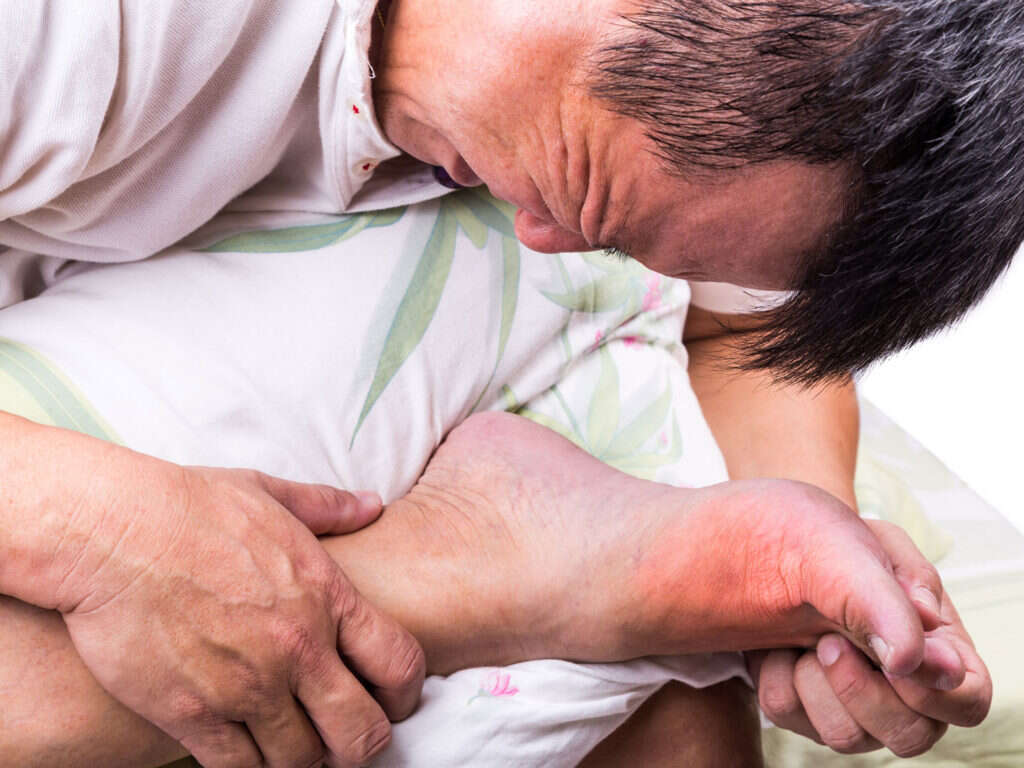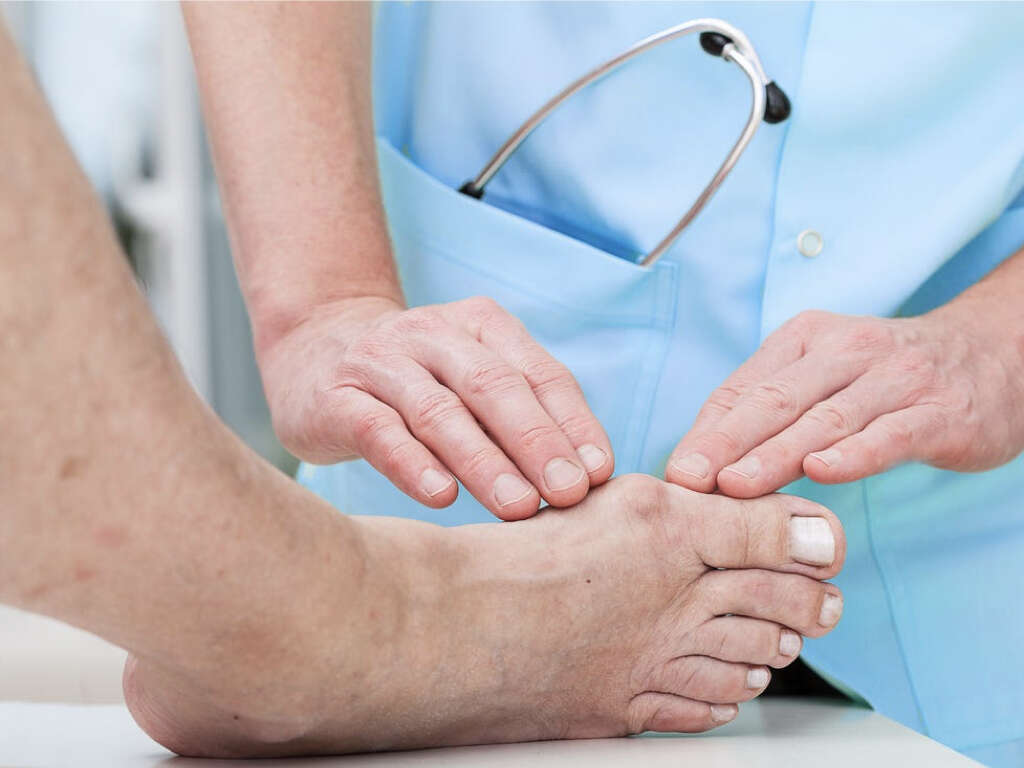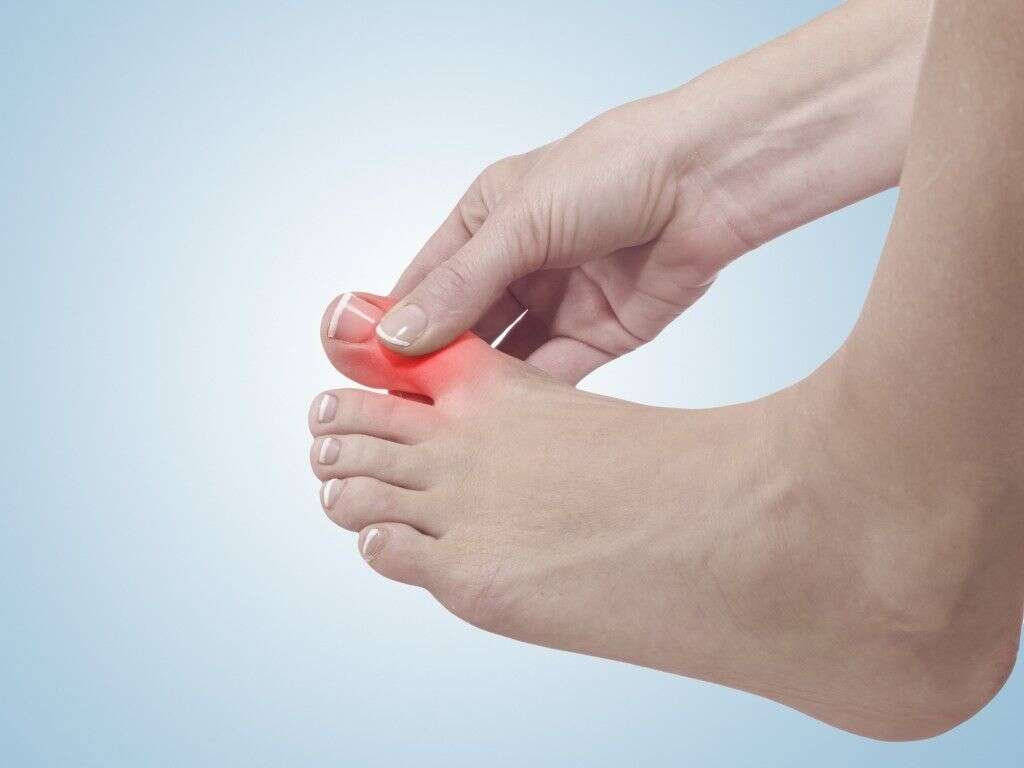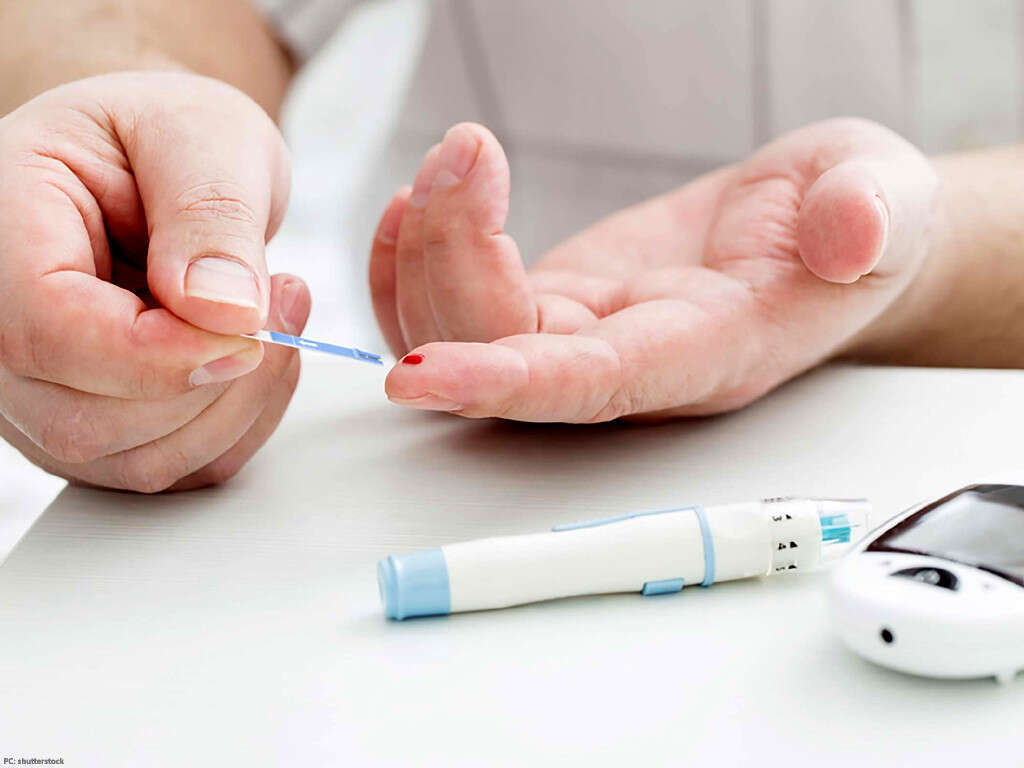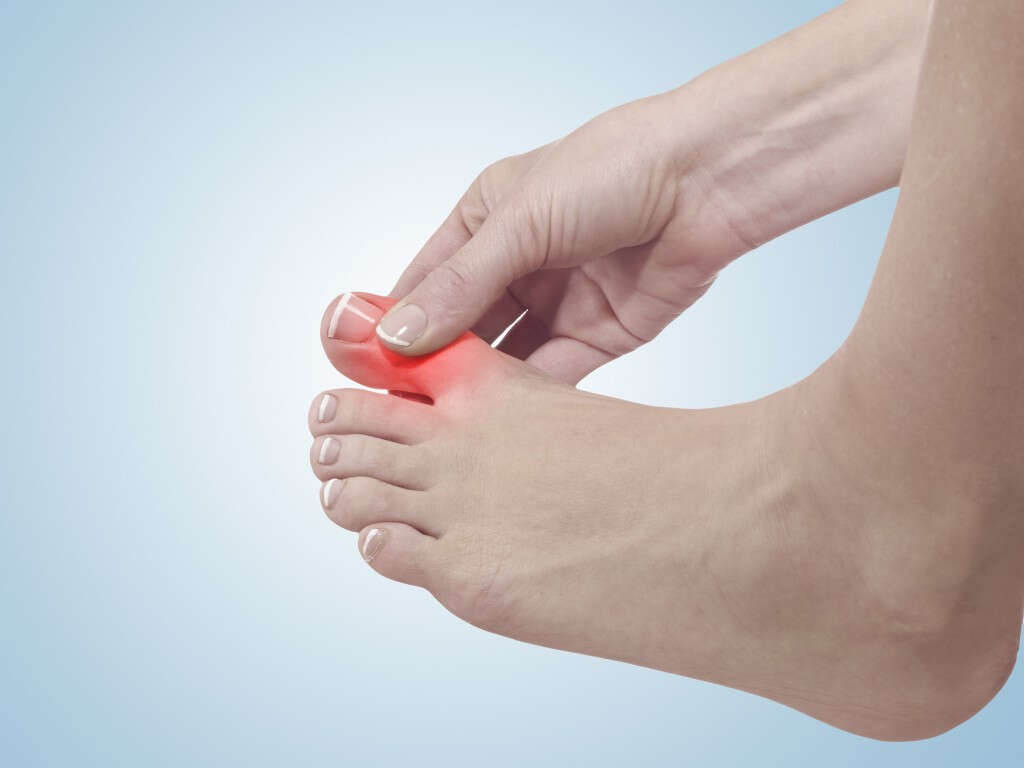10 Symptoms of Gout
 Article Sources
Article Sources
- 1. Goodman CC, Fuller KS. Pathology: Implications for the Physical Therapist. 3rd ed. Saint Louis, MO: Saunders; 2009.
- 2. Schlesinger N, Detry MA, Holland BK, Baker DG, Beutler AM, Rull M, Hoffman BI, Schumacher HR Jr. Local ice therapy during bouts of acute gouty arthritis. J Rheumatol 2002; 29(2): 331-334
Symptom #3: Sudden Pain
When suffering from gout, a flare-up can be sudden and may seem random. It can occur after walking for too long or standing for too long. An unexpected attack can cause extreme pain, starting in the toes and moving up to the feet, legs and lower extremities. One second, you may be completely fine and the next, you may find yourself unable to stand or mobilize. The pain can be so sensitive, that another person’s movement may cause vibrations that affect it. The only solution at this time is diet change and medically prescribed drugs, rest and cold compresses to bring the swelling down and allow your body to recover.
Acute gouty arthritis is the most common clinical presentation of gout and is quickly developed with severe joint pain, swelling and tenderness. Symptoms generally begin with a sudden onset of localised, intense pain, often occurring at night. It reaches its maximum within 12 hours and manifests with redness in the first metatarsophalangeal joint, found in the foot. Having crystals in the joint fluid, which causes the sudden pain and eventual degradation of arthritis, has been the gold standard for the diagnosis of gout.
Advertisement
